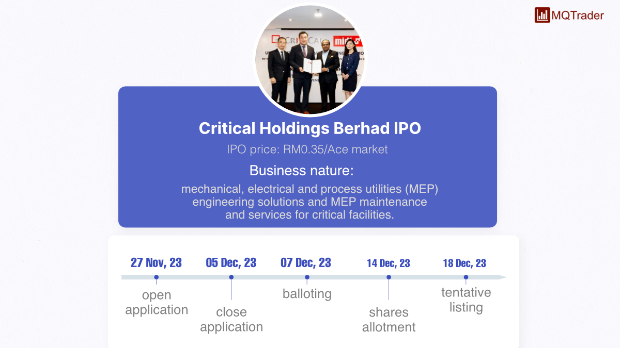Image Credit: Richard H. Thaler (London, July 13, 2015), Chatham House via Flickr
By Jason Zweig | Oct. 9, 2017 6:29 pm ET
This year’s Nobel Prize in economics was awarded for calling out loud, “The emperor has no clothes.”
Richard Thaler, an economics professor at the University of Chicago Booth School of Business, has spent most of the past four decades pointing out that people don’t act — or invest — the way economists say they do. He has also changed the investing world itself, enabling millions of people to save more than they otherwise would have thought possible.
 In the 1970s, experiments by Amos Tversky and Daniel Kahneman, two Israeli psychologists, had poked so many holes in the idea that people are “rational” that it already resembled a battered kitchen colander. But economists, ignoring that attack from outside their field, still clung to their notion of rationality as if it were a pristine golden bowl.
In the 1970s, experiments by Amos Tversky and Daniel Kahneman, two Israeli psychologists, had poked so many holes in the idea that people are “rational” that it already resembled a battered kitchen colander. But economists, ignoring that attack from outside their field, still clung to their notion of rationality as if it were a pristine golden bowl.
So Prof. Thaler shattered the idea from within. In a series of brilliant and startlingly funny articles published in prestigious academic journals beginning in the early 1980s, he pointed out that only economists think that people think the way economists think they think. Instead, non-economists think like human beings: impatiently, inconsistently, easily distracted by irrelevant factors.
Worse, Prof. Thaler pointed out, even most economists think like human beings.
“The fact that people are human is only interesting if uttered by an economist,” Prof. Thaler said when I spoke to him on Monday. “It’s obvious to everybody else.” Among economists in the 1970s and 1980s, however, “it was a verboten topic, and you took a lot of [grief] for saying it.”
To an economist, everything is about incentives and, to a lesser extent, information. Prof. Thaler showed that financial behavior is largely a problem of faulty self-control.
Instead of figuring out their goals and then immediately investing in a diversified portfolio likely to achieve the highest return for an acceptable level of risk, people often can’t act on their own best intentions. Why invest today when you will have even more to invest tomorrow — and you can use the money on something you need right now?
Furthermore, as Prof. Thaler told me in 1996, “what investors fear even more than losing money is having to say ‘What an idiot I am.’”
As a result, says Stephen Utkus, head of the Vanguard Group’s Center for Investor Research, “we’re a nation of procrastinators, not a nation of portfolio managers.”
In research done primarily with Shlomo Benartzi at the University of California Los Angeles, Prof. Thaler figured out that people will save far more for retirement if you take the effort out of it.
Sign them up automatically for a 401(k) retirement plan, instead of asking them whether they would like to join, and 90% of them will stick with it. Get them to commit now to invest more when they get their next raise, and they won’t feel any shrinkage in their paycheck. Stop mechanically putting a portion of their savings into their employer’s own company stock, while still enabling them to invest there if they wish, and people will diversify more broadly. Plop their savings into a target-date fund that bundles stocks, bonds and cash in a single package, and they won’t cower at the specter of a stock-market crash.
At least 15 million people in the U.S. are saving more for retirement thanks to this line of research, estimates Prof. Benartzi of UCLA. Mr. Utkus of Vanguard thinks the number may be closer to 50 million.
In short, Prof. Thaler’s research has permanently changed the investing landscape. “His ideas are so integrated into what we do that we often don’t even think of them as being his ideas,” says Diana Awed, who designs retirement-plan features at T. Rowe Price Group, with more than $934 billion in assets.
Much of Prof. Thaler’s contribution comes from a mindset more investors should try to emulate: He sees the world as if through a child’s eyes, as something wondrous and strange, as it is. To him, a consensus doesn’t confer authority; it calls his attention to the odd assumptions you have to make to believe in it.
“Dick has always been extremely observant,” says Prof. Thaler’s friend Daniel Kahneman, who won a Nobel in economics in 2002. “He’s an ironic observer: He looks at the world, and the world looks funny to him.”
“What’s funny is that economists think it’s an interesting comment to say that people are human,” Prof. Thaler told me on Monday in his characteristic, wry drawl.
Still, he grounds his worldview in rigorous analysis. “Dick is one of the clearest thinkers you’ll ever see,” says Prof. Kahneman. “When you look at his career, the ratio of home runs to the number of hits is incredible. He has never wasted his time on problems that didn’t matter.”
Prof. Thaler tells me that he hopes his winning the Nobel Prize “will give some courage to more young economists” to pursue the field of behavioral economics.
His career has already given many investors courage, whether they realized it or not.
Source: The Wall Street Journal, http://on.wsj.com/2goOwoP
For further reading:
Books:
Richard H. Thaler, The Winner’s Curse: Paradoxes and Anomalies of Economic Life
Richard H. Thaler and Cass R. Sunstein, Nudge: Improving Decisions About Health, Wealth, and Happiness
Richard H. Thaler, Misbehaving: The Making of Behavioral Economics
Definitions of BEHAVIORAL ECONOMICS, IRRATIONAL, RISK, in Jason Zweig, The Devil’s Financial Dictionary
Jason Zweig, Your Money and Your Brain
Chapter Eight, “The Investor and Market Fluctuations,” in Benjamin Graham, The Intelligent Investor
Fred Schwed Jr., Where Are the Customers’ Yachts?



















